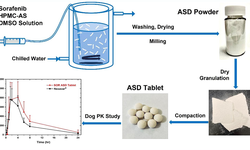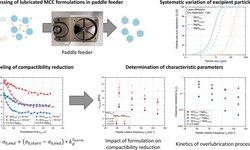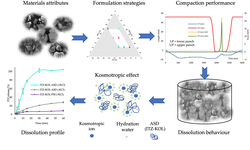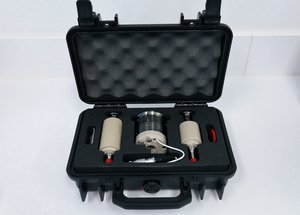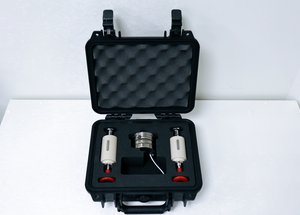Scientific papers
Most tablets produced include lubricants to minimize friction during ejection. However, in the case of plastically deforming materials such as microcrystalline cellulose (MCC), internal incorporation of lubricants is known to decrease tablet tensile strength. This decline results from the coverage of lubricant particles on the surface, influenced by various process and formulation parameters. Existing models for predicting the impact of lubrication on mechanical strength do not consider variations in excipient particle size. In this investigation, the influence of both lubricant concentration and mixing time on the tensile strength of tablets composed of three different MCC grades and four grades of magnesium stearate (MgSt) was examined. Accounting for the particle size of the applied excipients revealed a cohesive relationship between the theoretically estimated surface coverage and the reduction in compactibility. Analyzing the dispersion kinetics of MgSt over time highlighted a significant effect of the initial surface coverage on the dispersion rate, while the minimum tensile strength remained comparable across most formulations. To sum up, this study expands our understanding of lubricant dispersion and streamlines the reduction of necessary experiments in the development of new tablet formulations.

Comments
No comments posted yet.
Add a comment

